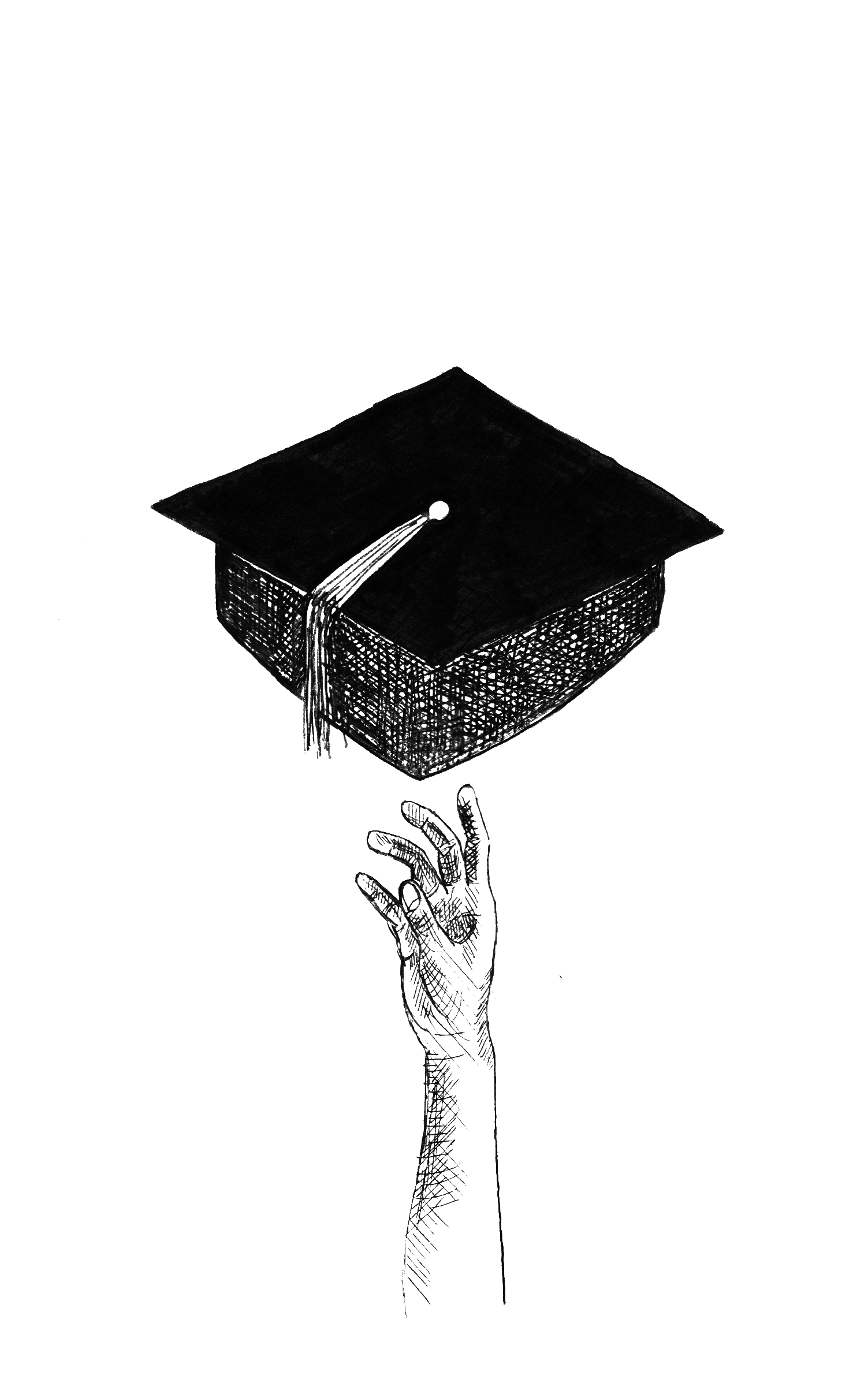Give power to the students
February 1, 2019
 This
piece represents the opinion of the author
.
This
piece represents the opinion of the author
.
 Lily Anna Fullam
Lily Anna FullamIn my time at this college, I have seen a great many students of color fail to graduate on time. I do not have enough fingers on my hands to count them all, not even for those in my class alone. There are systemic issues at fault here. Our institution does not provide enough support for students of color in their academics—to which THRIVE is certainly progress—but also their social life. When they struggle, we penalize them.
Our judicial process is flawed. The Judicial Board operates under the Academic Honor and Social Code, which has not been revised since 1993. If they find a student responsible for a violation, the Board “makes recommendations to the Dean of Students regarding possible sanctions.” I have reservations about administrative oversight that strips students of significant autonomy, but I am more unsettled by the first breach of our Social Code, “conduct that is unbecoming of a Bowdoin student.” Examples are listed, but the phrase is never defined. It begs the question, what is conduct unbecoming of a Bowdoin student?
When I was growing up, I spent weekends at my father’s house. I remember this one time we all sat around the living room sharing stories about high school. My stepmother had caught someone spreading lies about her, so she clocked her right in the face. Another time, my father was backing up a friend and punched a guy straight through a car window. These were violent tales, to be sure, but I am better for having heard them. My father taught me not to take shit from nobody. He taught me how to defend myself.
And yet, my upbringing is at odds with Bowdoin’s zero tolerance policy for violence, which makes me vulnerable to expulsion. In the past five years, there have been credible rumors of two black men having been called the n-word, and when a fight ensued, they were the ones asked to leave. Black men are the demographic least likely to graduate in four years, in large part due to the judicial process. Despite this, our conduct is becoming of a Bowdoin student because we are Bowdoin students.
In “Letter From a Birmingham Jail,” Martin Luther King Jr. critiques the nature of unjust laws such as ours. “Sometimes a law is just on its face,” he writes, “and unjust in its application. For instance, I have been arrested on a charge of parading without a permit. Now, there is nothing wrong in having an ordinance which requires a permit for parade. But such an ordinance becomes unjust when it is used to maintain segregation.”
Our Social Code maintains segregation when students of color are forced to leave our college to appease a white power structure.
To be clear, I am not advocating for violence. I am arguing for our Code to be revised so that it may better represent the values of our community at this point in time, and so that it may be unjust no longer. I propose that we make this Code a living document with values-based language. We students are members of this community, and we pay for this privilege. We ought to have the power to manage our own conduct.
Until there is real action on the part of students and administrators, this matter will never resolve itself. King writes, also in the letter, “Time itself is neutral … human progress never rolls in on wheels of inevitability … without this hard work, time itself becomes an ally of the forces of social stagnation.” When we understand time to be neutral, we must act with a sense of urgency. “The moral arc of the universe is long, but it bends toward justice, only if we bend it.”
For a liberal arts college, change is incredibly slow moving here. Reluctantly, I say this time is different. Students have met with administrators. All seem to be in agreement that a working group of students, faculty and staff should form to address this issue. Yet, I fear that this future working group will form only to recommend to President Rose that we form another working group. I have a recommendation for President Rose: give power to the students.

Comments
Before submitting a comment, please review our comment policy. Some key points from the policy: